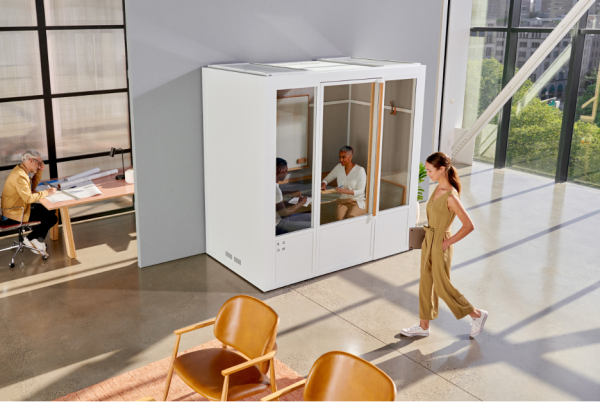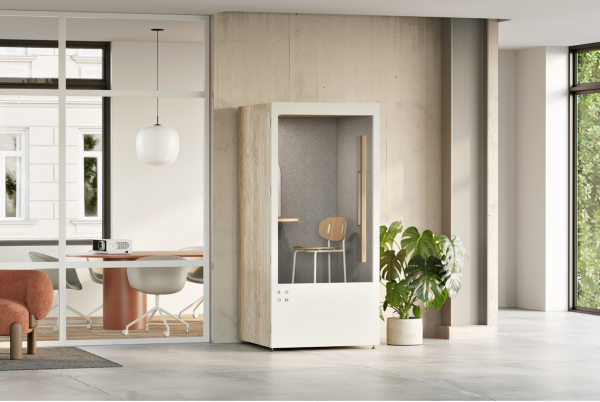Reimagining The Workplace: ROOM Revamps How The World Perceives Working Spaces

ROOM is reimagining the workspace through modular architecture
As quarantine guidelines have relaxed significantly in both 2022 and 2023, offices worldwide have opened their doors. However, many employees are reluctant to return to rows of cubicles or limited-use open floor plans in favor of increased flexibility, which leaves executives with expensive and difficult-to-maintain square footage that isn’t being utilized.
Now competing with coffee shops, in-home offices, and anywhere with Wi-Fi, businesses from smaller startups to well-established corporations are seeking ways to attract, and retain, top talent. And as a rapidly evolving 21st century has left the traditional office model largely untouched, those who want to get ahead are left with one question: “How do we adapt?”
A 2022 Pew Research Center survey shows that 76% of those who work from home cite personal preference as a major factor, and Microsoft’s Work Trend Index special report from the same year offers some insight: 73% of employees say they would go to the office more frequently if their direct colleagues were present.
“Having a space that fosters human interaction is crucial for problem-solving and creative ingenuity,” says Morten Meisner-Jensen, who brought a 20-year entrepreneurial background and an experience-centered philosophy to cofound ROOM, which provides purpose-built modular workspaces for both focused productivity and meaningful collaboration. “People will only come back for the right reasons. Industries must adapt to what employees need to feel and perform their best at work.”

ROOM’s best-selling phone booth
Centering on Sustainability
Helping employers bypass a complex, expensive, and labor-intensive fixed construction undertaking, ROOM cuts through the need for myriad stakeholders and long turnover times. The firm’s locally manufactured office pods—including the compact, soundproof phone booth, focus room, and meeting room—are quick to deploy and can be disassembled, relocated, and reassembled numerous times.
This process allows companies to shape and reshape the workplace while replacing multiple cycles of construction, saving thousands in overhead costs, and hitting predetermined ESG strategies.
“Every time we produce a phone booth, we recycle more than 1,000 plastic bottles, and our materials are entirely recyclable at the end of life,” says Meisner-Jensen, a response to the industry’s direct impact on carbon emissions and ever-growing landfills. According to a report by the U.S. Environmental Protection Agency, 75% of manufacturing and construction materials, such as drywall, end up as waste, totaling 145 million tons for 2018 alone.
In the coming years, Meisner-Jensen and his colleagues are seeking to completely replace fixed interior architecture with its modular counterpart: a radical shift that will be as enduring as it is malleable.
“It’s impossible to predict the future. For many businesses, the ones that survive are the ones that adapt,” he says. “The commercial real estate market is demanding flexibility and short-term leases because nobody knows what the office is going to look like just in a few years from now. The promise of modularity is designing for the one thing that we know for sure: change.”
Media Contact
Company Name: ROOM
Email: Send Email
Country: United States
Website: https://room.com

